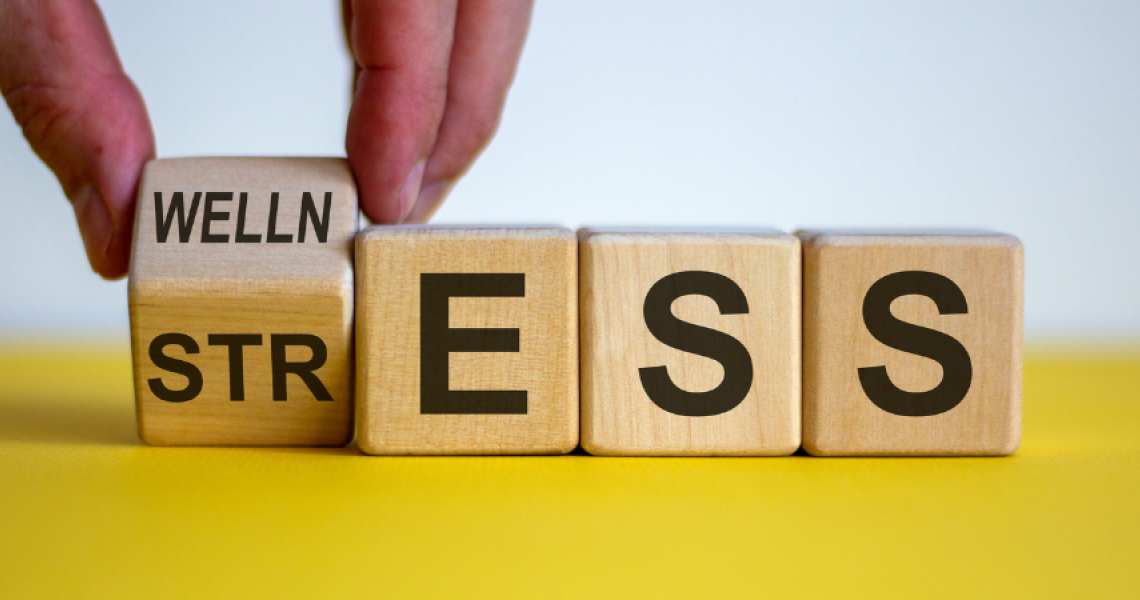
Working hard should not be confused with overworking at the expense of your relationships and mental and physical health. The American Psychological Association’s annual Stress in America survey has consistently found that work is cited as a significant source of stress by a majority of Americans. But there are steps you can take to manage stress.
- Mindfulness Practice
-
Self-Paced
Relaxation and Breathing
- Center for the Mind-Body Medicine
- 21 Microdoses of Mindfulness
- 8 Ways Healthcare Workers Can Reduce Stress
- Calming Breath
- Breathing exercises reduce the activation of the amygdala.
- Free Mindfulness Project
- UCLA Mindful Awareness Research Center
- Progressive muscle relaxation reduces muscle tension, counteracts sympathetic activation and promotes parasympathetic response.
- Yoga and various stretching exercises promote relaxation and tension reduction.
Other Techniques
- Well-being
-
- Headspace
- SMHS/MFA Care for the Caregivers Program
- Curated Wellness Resources (Himmelfarb Health Sciences Library)
- The Loveland Foundation (African-American women, girls, and gender nonbinary.)
- National Queer & Trans Therapists of Color Network
- Shine (BIPOC)
- Mindfulness Based Stress Reduction Program (GW Center for Integrative Medicine)
- NAMI Frontline Wellness Program Mindfulness for Healthcare Professionals
- Voices of Academia (Podcast focused on mental health and well-being or researchers)
- American Medical Association
- Steps Forward
- Calming Breath (GW Office of Integrative Medicine & Health)
- A Mindfulness Experience (GW Office of Integrative Medicine & Health)
- Physical Activity
-
- Lerner Health and Wellness Center
- Lifestyle, Sport and Physical Activity Courses (LSPA)
- Live-stream Studio and Gym Workouts
- Fitness Blender: Free exercise website
- Sweat and Social Distance: Virtual workout, video, conversation
- Healthy Lifestyle Tips
-
The six essential lifestyle elements that optimize health are nutrition, exercise, sleep, stress, substance abuse, and social connection. These tips for maintaining a healthy lifestyle during this extraordinary time were supplied by Leigh Frame, PhD, MHS, associate director of the GW Resiliency & Well-being Center, director of GW Integrative Medicine Programs, and executive director of the GW Office of Integrative Medicine & Health.
1) Move throughout the day. Walk (even in place) during meetings when you can—go outside in the morning to get vitamin D too! Take stretch breaks (3 you can do every hour & 4 for when you need to move more). Walking after dinner has been shown to have health benefits like blood sugar control: see GW’s own Loretta DiPietro’s research.
2) Make time to clear your head. Just 3 minutes focusing on your breath can lower your blood pressure. Try square breathing—for a count of 3-4 each: inhale, hold, exhale, hold, repeat. Try lengthening the counts as you practice.
Yoga & tai chi are moving meditations you can do anywhere. Try this beginner's yoga program, these beginner’s tai chi moves, or kids' meditation.
3) Eat more plants & whole foods. Focus on fresh or dried herbs & simple food prep. Roasted vegetables = fiber candy! Canned beans = dinner time shortcut!
Nutrition Stripped is my favorite source for interesting, healthy recipes. Check out their 20 Easy Pantry Meal Ideas (Hint: canned beans in here!).
4) Get 7-9 hours of restorative sleep. Prepare by disconnecting (1-2 hours, or even 30 minutes, before bed), avoiding alcohol (3-4 hours before), unloading your mind, etc. A winddown routine can be hugely beneficial: a great time to journal or do your meditation be it square breathing, yoga, tai chi, or through Headspace, which is now available free to all GW employees!
5) Positive social connection. Talk to people as much as possible. Challenge them to a plank-off to strengthen your core while you’re at it…then laugh when you’re finished. Smile!
- Student Resources
-
- Campus Life 101: Managing Stress
- List of resources and services to help students consciously manage stress.
- GW Counseling and Psychological Services
- SMHS Office of Graduate Medical Education
- Voices of Academia
- Blog and podcast created to bring together the voices of academics—be they undergraduates, PhD researchers, or professors—from across the globe to discuss mental health and well-being in academia.
- Campus Life 101: Managing Stress